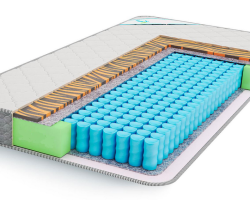This article describes what you need to know about a premature child.
Content
- What children are called prematurely: terms, week
- The risks of the birth of a premature newborn child
- A premature child: signs
- Features of caring for premature children
- Forecast for premature births and the birth of a premature child: Development delay
- Prevention of premature birth and the birth of a premature child
- Video: How do they take care of premature babies in special departments in the queen?
- Video: The most premature children
A premature child is a baby who was born up to 37 weeks. Such children have their distinguishing features compared to full -term ones. Nursing of premature babies implies the organization of special care - temperature, humidity, level of oxygenation, feeding, if necessary - intensive care.
Read on our website another article on how to correctly cut and bandage the umbilical cord to a newborn. This is interesting and useful information that can be useful to many people.
What else do you need to know about a premature child? Read about this in this article.
What children are called prematurely: terms, week

The conditional criteria for prematureism include anthropometric indicators, all this because of their significant variability. Doctors will write down in the history of childbirth in prematurely if he was born on time from 28 to 37 weeks pregnancy, has weight 1000-2500 g and body length 35-45 cm. Such children are called prematurely.
It is worth knowing that the baby can be:
- Born prematurely - as mentioned above, less than 37 weeks of pregnancy
- Born of a full -term - 37-42 weeks pregnancy
- Late born - born after 42 weeks pregnancy
It's important to know: If a woman begins to give birth to 37 weeks pregnancy, this is called premature birth.
Late premature children are children born between 35 and 37 weeks pregnancy. They should not look at all as in premature birth. They may not be hospitalized in the intensive care unit, but they still have an increased risk of developing some problems compared to full -term children.
The risks of the birth of a premature newborn child
Some state health conditions can increase the risk of premature birth and the birth of a premature newborn child. It can be:
- Sach. diabetes
- Heart disease
- Pathology of the kidneys
There are many causes of premature birth:
- Bad food
- Unsatisfactory everyday conditions
- Professional harmfulness
- Adverse psychoemotional background
- Anamnesis abortion
- Gestosis
- The hemolytic disease of the fetus
- Premature detachment of the placenta
Near 15% premature children are a multiple pregnancy (twins, triplets, etc.).
Some problems with pregnancy can increase the risk of premature birth:
- Weakened cervix, which begins to expand prematurely
- Congenital defects of the uterus
- The presence of a previous history of premature birth in a future mother
- Infections - urinary tract and amniotic shell
- Poor food shortly before or during pregnancy
- Preeclampsia - increased blood pressure and protein in the urine, which develop after 20 weeks of pregnancy
- Premature rupture of the shell (placenta presentation)
Other factors that increase the risk of premature birth are:
- Mother's age is younger than 16 and older than 35 years
- African American origin of the mother
- Lack of antenatal assistance
- Low socio-economic status
- Consumption of tobacco, alcohol, drugs
About the signs of a premature baby is written below. Read further.
A premature child: signs

Premature children can have the following health problems:
- Anemia
- Bleeding in the brain or damage
- Various kinds of infections or neonatal sepsis
- Low blood sugar - hypoglycemia
- Respiratory distress syndrome, an excess of air in the lung tissue-emphysema or bleeding in the lungs-pulmonary bleeding
- Children's jaundice
- Breathing problems due to immature lungs, pneumonia or constant arterial duct
- Severe intestinal inflammation - necrotic enterocolitis
Premature children will have less body weight at birth than in full -term ones. General symptoms in premature children:
- Abnormal breathing - superficial breathing, irregular pauses in breathing during sleep
- Hair on the body - Lanugo
- Increased clitoris - in female babies
- Lack of fat in the body
- Lack of muscle mass and a lower level of activity than in full -term children
- Problems with feeding due to difficult sucking or controlling swallowing and breathing
- Small scrotum, smooth, without protrusions and inappropriate testicles - in men's babies
- Rodnichok and sutures of the skull are open
- Thin, smooth, shiny skin, often transparent (veins are visible under it)
Diagnosis of prematureism of children can be this:
- Blood gases analysis to check the level of oxygen in the blood
- Blood tests to check the level of glucose, calcium and bilirubin
- Visualization of the chest
- Cardiorespirator monitoring - breathing and pulse monitoring
Read on our website another article with full information on the topic: A premature child - signs, degree, causes, nursing, illness. You will find out how many premature children lie in the hospital, what weight they write out.
Features of caring for premature children

When premature birth occurs and when it is impossible to stop them, the team of doctors and nurses prepares everything necessary for childbirth with high risk. Mother can be transferred to another hospital compartment, most often to the intensive care unit. It is worth knowing the features of caring for premature children:
- After birth, the child is placed in an incubator on a warm bed, where the air temperature is adjusted as necessary.
- Devices that control his breathing, heart rate and the level of oxygen in the blood will be connected to the baby.
- In cases where the child’s organs are not fully developed, he receives special care, which can take weeks or months.
- Infants usually cannot coordinate sucking and swallowing before 34th week pregnancy.
- A short -term child can be inserted a small soft tube that will pass through the nose or mouth to the stomach.
- Very early born premature children, food is supplied through a vein until the baby stabilizes the condition in order to receive food through the stomach.
If the child has breathing problems:
- A tube is placed in the trachea, and a special respirator will help the baby breathe.
- Some children who have small breathing problems are connected to the CPAP device, which drops the air pressure, and the tube will then be in the nose, not in the trachea.
Oxygen can also be supplied through special devices and equipment:
- Respirator
- CPAP
- Nasal probes
- Oxygen mask
Infants need special care until they breathe without additional support, eat through their mouths, maintain body temperature and gain weight. Very young children may have other problems that make it difficult to treat and require a longer stay in the hospital.
Forecast for premature births and the birth of a premature child: development delay

Premature birth was once the main cause of death of babies. Innovations in medical technologies increased the survival of premature children. No less 90% children born on 28 week Pregnancy, survive. Therefore, the forecasts of premature birth and the birth of a premature child are good.
But it is worth knowing that premature birth can have consequences for the child in the future. Premature children have health, development and behavior. Some of these deviations will be present only in childhood, and some will become constant.
Possible complications in premature children:
- Bronchopulmonary dysplasia (BLD)
- Growth and development delay
- Mental or physical disability or developmental delay
- Neonatal retinopathy, loss of vision or blindness
The smaller the weight of the child at birth, the higher the risk of complications. It is impossible to predict a long -term result, based only on the gestational age or body weight at birth.
Prevention of premature birth and the birth of a premature child
Now it is fashionable that the young couple is preparing for the birth of the baby and this is not just that. It is important to follow the recommendations of doctors if you want you to have a healthy baby. This is the prevention of premature birth and the birth of a premature child:
- Health before conception - a woman and a man should be examined by the doctors to find out about the state of her health. If there are any violations, then you need to treat and only then plan a pregnancy.
- It is important to make sure that the woman receives the best antenatal care during pregnancy.
- It is necessary to continue the antenatal care until the child is born.
- The sooner it is possible to receive antenatal assistance, the lower the risk of premature birth.
- Premature birth can sometimes be delayed with the help of drugs that block uterine contractions. However, in a large number of cases, such a delay does not end successfully. Only a doctor decides what medicines to a woman to prescribe and whether it can be done in a particular case.
- Betamethasone (steroid drug), prescribed by the future mother, reduces the risk of serious complications. Now it is prescribed for women if there is a risk of premature birth.
Video: How do they take care of premature babies in special departments in the queen?
Video: The most premature children
Read on the topic:







